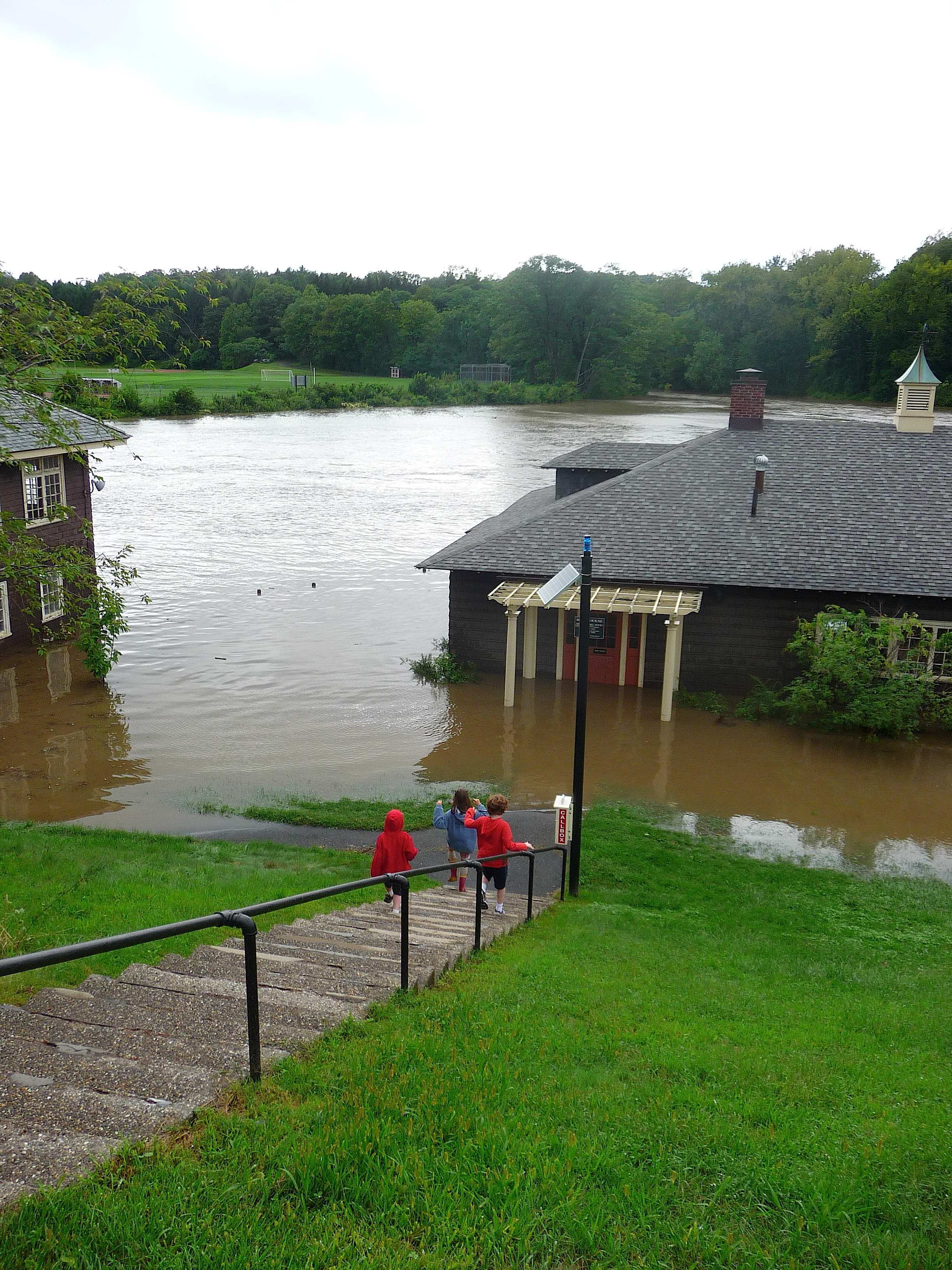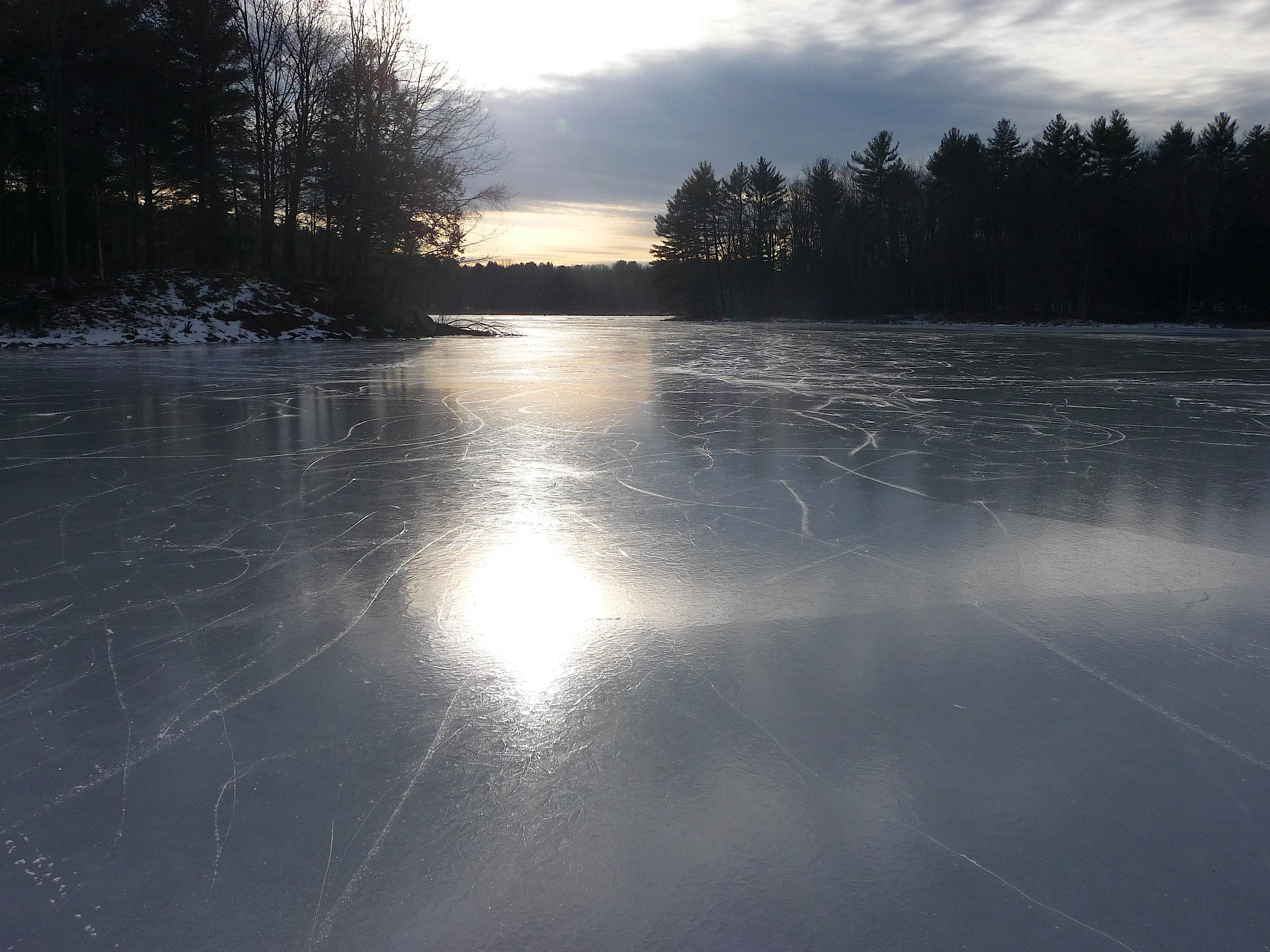
For millions of years, the Earth's climate has changed, but relatively slowly, due to the combined effects of solar variability, changes in the tilt of the Earth's spin axis, and the ever-changing balance of biochemistry on the planet's surface, in the oceans, and in the air. Now, much more rapid climate change due to excessive burning of fossil fuels (coal, oil, gas) is already happening. The polar ice caps are melting, glaciers are receding all around the globe, and the 10 hottest years on record have all been since 1998. New England is experiencing heavier downpours and shorter winters, and floods and wildfires around the world are occurring more frequently due to changes in the climate. There is ample evidence that climate change is becoming a major factor in geopolitical instability, causing desertification that leads to water shortages, crop failures, and mass migration of people. Climate change threatens island nations and millions of plant and animal species with extinction. Climate change is perhaps the biggest problem humanity has ever faced.

For decades, anti-envrionmentalist individuals, corporations, politicians, and organizations such as the Koch brothers, Exxon-Mobile, Sen. James Inhofe (R-OK), and the American Petroleum Institute have tried to sow public doubt about the reality and severity of climate change, and about the accuracy of climate science. They have used the same duplicitous strategies the tobacco industry employed to confuse the public about the harms of smoking (see Naomi Oreskes' book "The Merchants of Doubt"). Contrary to popular belief, however, the vast majority (more than 97% by some measures) of scientists agree that climate change is real, is serious, and is caused primarily by human activity. Most professional societies of scientists have issued statements affirming their consensus that the Earth's climate is warming.
Climate deniers have partly succeeded in linking belief in climate science with political persuasion. Even so, in 2014, 60-65% of Texans believed global warming was happening, three of four Americans believe climate change should be taught in schools, majorities of Catholic and non-evangelical Christians believe climate change is happening, and even Republican voters are split evenly on climate change, with a rapidly increasing fraction believing it is real and that we should do something about it.
Here is Pope Francis' encyclical "On Care for our Common Home".

I've been following climate change since the late 1980's, when the UN Intergovernmental Panel on Climate Change (IPCC) was formed. Since then, I've been involved in many efforts to educate the public and our decision-makers about climate change, for example:
- I founded in 2010 and currently chair the American Astronomical Society's Committee on Sustainability.
- I founded and currently co-lead Smith College's Environmental Concentration in Climate Change.
- I chaired the Smith College Committee on Sustainability, which wrote Smith's Sustainability and Climate Action Management Plan.
- I helped organize Smith's Focus the Nation events.
- I've given many public talks about the links between transportation, oil, and climate change.
- I authored a petition to the Trustees of Smith College to divest from fossil fuels.
I always include climate change in my introductory Astronomy classes (AST 100 and 111). My class at Smith on "Astronomy and Public Policy" (AST 214) always includes a major section on climate change.
More climate change links
- Divestment commitments from fossil fuels
- Real Climate
- American Association for the Advancement of Science What We Know
- Katherine Hayhoe, climate scientist
- Union of Concerned Scientists
- Alliance for Climate Education
- George Mason University Center for Climate Change Communication
- Yale Program on Climate Change Communication
- Carbon footprint calculators: